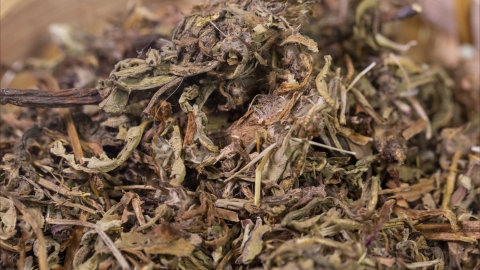Which wild vegetables can treat thickened endometrium?
Currently, there is no sufficient scientific evidence indicating that wild vegetables can treat thickened endometrium. Some wild vegetables are only traditionally believed to have mild regulatory effects, such as dandelion, purslane, shepherd's purse, bitter herb, and alfalfa. Detailed analysis is as follows:

1. Dandelion: Traditionally, dandelion is considered to have a cool nature and certain heat-clearing properties. However, such effects are limited to general dietary regulation and cannot address the underlying pathological causes of endometrial thickening. Consumption should be moderate to avoid gastrointestinal discomfort from overuse.
2. Purslane: In traditional use, purslane is often thought to help clear heat and remove dampness. However, this regulatory effect falls far short of meeting the therapeutic needs for endometrial thickening and cannot replace professional medical treatment. Individuals with spleen and stomach deficiency-cold may experience worsened symptoms after consuming it.
3. Shepherd’s purse: While shepherd’s purse provides nutrients such as vitamins in daily diets and is traditionally regarded as having mild regulatory properties, these characteristics cannot alter the pathological state of endometrial thickening and therefore should not be relied upon as a treatment option.
4. Bitter herb: Traditionally believed to possess heat-clearing properties, bitter herb lacks both the potency and specificity required to effectively treat endometrial thickening. Excessive or indiscriminate consumption may also impose physical strain due to its cooling nature.
5. Alfalfa: Rich in dietary fiber and nutrients, alfalfa is occasionally used in traditional daily health maintenance. However, there is no scientific evidence supporting its efficacy in treating endometrial thickening, and it should not be depended upon to resolve pathological endometrial issues.
Endometrial thickening requires medical evaluation to determine the underlying cause—such as hormonal imbalances or endometrial lesions—followed by a targeted treatment plan prescribed by a healthcare provider. Do not blindly believe claims that wild vegetables can cure endometrial thickening, as doing so may delay proper medical treatment. If you experience symptoms or are diagnosed with a thickened endometrium, seek prompt medical attention and follow professional guidance.





